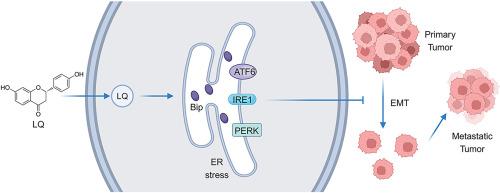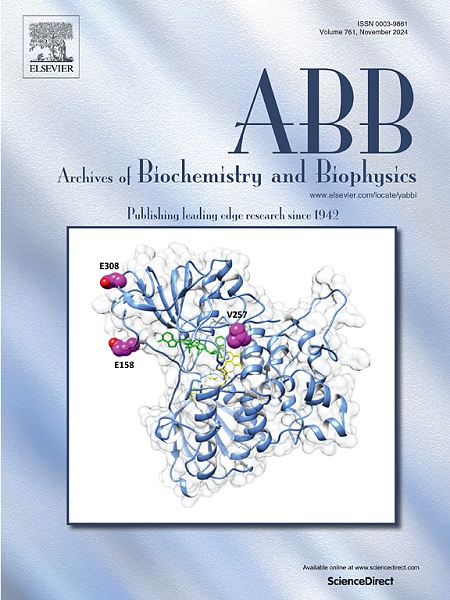Liquiritigenin inhibits the migration, invasion, and EMT of prostate cancer through activating ER stress
IF 3.8
3区 生物学
Q2 BIOCHEMISTRY & MOLECULAR BIOLOGY
引用次数: 0
Abstract
Liquiritigenin (LQ) is a monomeric compound found in licorice, a leguminous plant, and has been reported to exhibit antitumor effects in various lines of cancer cells. However, the underlying molecular mechanisms by which LQ exerts its antitumor effects remain largely unknown. In this study, the effects of LQ on the migration, invasion, and epithelial-mesenchymal transition (EMT) of prostate cancer (PCa) cells were investigated. We found that LQ effectively inhibited the migration and invasion of PCa cells in vitro, and this effect was further confirmed in xenograft lung metastasis models. In addition, LQ was found to activate endoplasmic reticulum stress (ER stress) in PCa cells. Further studies found that LQ upregulated the expression of inositol-requiring enzyme type 1α (IRE1). When IRE1 was knocked down, we observed a weakened inhibitory effect of LQ treatment on the migration and invasion of PCa cells. This observation suggests that LQ may inhibit the migration, invasion and EMT of PCa cells through activating the IRE1 branch of ER stress. In conclusion, our research may provide a novel therapeutic strategy for PCa.

鸢尾甙元通过激活ER应激抑制前列腺癌的迁移、侵袭和EMT。
据报道,Liquitigenin(LQ)是一种存在于豆科植物甘草中的单体化合物,对多种癌细胞具有抗肿瘤作用。然而,LQ 发挥抗肿瘤作用的潜在分子机制在很大程度上仍然未知。本研究探讨了 LQ 对前列腺癌(PCa)细胞迁移、侵袭和上皮-间质转化(EMT)的影响。我们发现 LQ 能有效抑制 PCa 细胞在体外的迁移和侵袭,这一作用在异种肺转移模型中得到了进一步证实。此外,我们还发现 LQ 能激活 PCa 细胞的内质网应激(ER 应激)。进一步的研究发现,LQ能上调肌醇需要酶1α型(IRE1)的表达。当 IRE1 被敲除后,我们观察到 LQ 对 PCa 细胞迁移和侵袭的抑制作用减弱。这一观察结果表明,LQ可能通过激活ER应激的IRE1分支来抑制PCa细胞的迁移、侵袭和EMT。总之,我们的研究可能会为 PCa 提供一种新的治疗策略。
本文章由计算机程序翻译,如有差异,请以英文原文为准。
求助全文
约1分钟内获得全文
求助全文
来源期刊

Archives of biochemistry and biophysics
生物-生化与分子生物学
CiteScore
7.40
自引率
0.00%
发文量
245
审稿时长
26 days
期刊介绍:
Archives of Biochemistry and Biophysics publishes quality original articles and reviews in the developing areas of biochemistry and biophysics.
Research Areas Include:
• Enzyme and protein structure, function, regulation. Folding, turnover, and post-translational processing
• Biological oxidations, free radical reactions, redox signaling, oxygenases, P450 reactions
• Signal transduction, receptors, membrane transport, intracellular signals. Cellular and integrated metabolism.
 求助内容:
求助内容: 应助结果提醒方式:
应助结果提醒方式:


